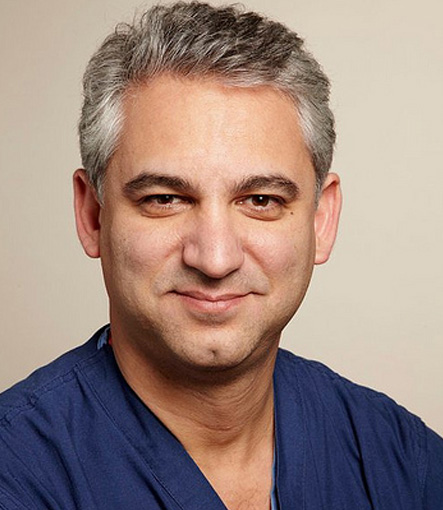Distinguishing between aggressive prostate cancer and slow-growing tumors has always been a challenge when determining how to treat this common cancer in men. Now, a new study published in the journal European Urology has found a specific molecule in prostate tumors indicating if the cancer is aggressive requiring surgery or radiation or if its’ an indolent tumor.
“This discovery is very exciting for the future of treating prostate cancer,” said Dr. David Samadi. “It can be a dilemma at times to know just how aggressive to treat a man’s tumor but the news of this molecule as a marker indicating if the prostate cancer is likely to be aggressive will help physicians more accurately decide the course of direction to take.”
The scientists from the study found that levels of an RNA molecule called PCAT-14 is elevated in men who have slow-growing tumors whereas lower levels of the molecule were found in patients with aggressive tumors.
Senior author of the study, Christopher A. Maher, PhD, has identified PCAT-14 from past research as one of 121 similar RNA molecules strongly associated with prostate cancer. PCAT-14 was the only RNA molecule to be found specifically in prostate cancer and the only one to be consistently altered in all prostate cancer patients distinguishing between indolent and aggressive prostate cancer.
Researchers from the study analyzed and compared prostate cancer tumor samples from 910 patients with known treatment outcomes with 180 patients at three different institutions. They surprisingly found that high levels of PCAT-14 were found in patients with slow-growing tumors while patients with aggressive tumors had lower levels of PCAT-14. High levels of the RNA molecule seemed to form a wall creating a barrier suppressing or slowing the growth and spread of aggressive prostate cancer cells while low levels of PCAT-14 seemed to remove the barriers allowing the aggressive cells to proliferate in number and allowing them to metastasize.
Another finding from the study was that low levels of PCAT-14 did not respond well to androgen deprivation therapy, a hormone-based treatment for prostate cancer less toxic than chemotherapy and radiation therapy. This may indicate that PCAT-14 could possibly be useful as a method to decide how a well a patient may respond to androgen deprivation therapy.
Tissue samples from the prostate tumors that had been surgically removed were used to measure levels of PCAT-14 for the study. The goal is to find a more noninvasive test to measure levels of PCAT-14 such as a urine test to improve the diagnosis and treatment.
“Studies like this make my job easier as a urologist/oncologist guiding my patients in their treatment method,” stated Dr. Samadi. “This helps advance the future of treating prostate cancer bringing it to a new level of how we view it. If we can know at the very beginning of when a man is diagnosed whether the tumor is indolent or aggressive, this means I can start right away individualizing the best treatment option for each man who sees me in my office.”
Patients newly diagnosed with prostate cancer can contact world renowned prostate cancer surgeon and urologic oncologist, Dr. David Samadi, for a free phone consultation and to learn more about prostate cancer risk, call 212-365-5000.






